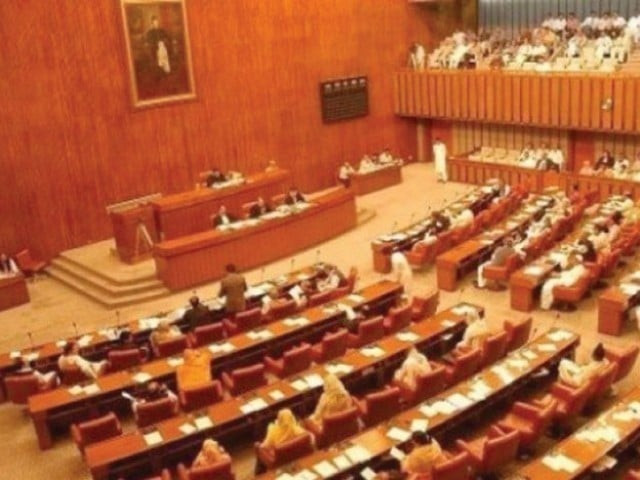Senate panel endorses suspension of trade with India
Business community seeks clarity on letters of credit already opened

PHOTO: EXPRESS
It was revealed in a meeting of the Senate Standing Committee on Commerce and Textile Industry, chaired by Senator Mirza Muhammad Afridi on Thursday, which endorsed the government’s decision on suspending all bilateral trade and commercial activities with India.
The parliamentary panel affirmed unconditional support to the people of Kashmir and condemned the Indian move to unilaterally scrap the special status of the occupied region. Pakistan imports goods worth $1.8 billion from India annually whereas its exports to the neighbour stand at $340 million. Additional Commerce Secretary Javed Akbar told the Senate panel that it was a sensitive issue and there should be a line of action for implementing the decision.
The business community had sought clarity on the letters of credit that had already been opened, he said, adding that the ministry was working on necessary procedures in that regard.
India urges Pakistan to review decision of downgrading diplomatic ties
About the $1-billion package approved by China, the additional secretary pointed out that the package covered export of sugar, rice and cotton yarn to China. Under this arrangement, 300,000 tons of rice, 200,000 tons of sugar and 350,000 tons of cotton yarn would be exported to China. The secretary revealed that agreements for sugar and rice supply had been finalised but no deal had been reached so far on cotton yarn shipment.
“We are discussing this issue with the All Pakistan Textile Mills Association (Aptma). Demand for cotton yarn will increase due to China’s tariff concessions on 313 goods under phase-II of the free trade agreement,” he said. “Therefore, Aptma is reluctant to accept this package which will be valid till December 2019.”
The secretary pointed out that Chinese investors were willing to relocate their industrial units to the Special Economic Zones being set up under the China-Pakistan Economic Corridor (CPEC). However, they were also interested in setting up industrial units in coastal areas of Sindh and Balochistan for the export of products to different countries.
He suggested that rules should be amended keeping in view current requirements of foreign investors.
The meeting was told that Chinese investors could have 100% ownership of industrial units in Pakistan but committee members urged the government to formulate a policy that could bind Chinese investors to form joint ventures with Pakistani counterparts.
Pakistani investors should have at least 35% shareholding in joint ventures with Chinese companies, committee members emphasised.
Nauman Wazir Khattak - a member of the committee - asked about the ease of doing business and cost of doing business in Pakistan. He was of the view that rules for investors were strict in Pakistan and the Board of Investment should hold a comparative study on the investment environment in the country.
However, the committee chairman argued that the ease of doing business and cost of doing business in Pakistan was better than that in China in some sectors. He suggested that the government should frame a policy for the export of seafood and vegetables from Gwadar to China.
He pointed out that China had modern villages that were getting cheap electricity and these villages had developed export-oriented industries. The government of Pakistan should follow the same model for giving a boost to exports, he said.
Lodhi briefs UNSC president over India’s illegal actions in occupied Kashmir
Senator Shibli Faraz was of the view that the government should focus on export of non-traditional goods but regretted that there was no industrial policy and no investment policy in Pakistan. However, he said there was a scope for export of non-traditional items.
The additional commerce secretary revealed that the government was working on a joint strategic framework with Japan in an effort to explore opportunities of export of non-traditional items.
In that regard, a Pakistani delegation visited Japan and held meetings with different ministries. Officials of the commerce ministry told the meeting that Pakistan had decided to use former banking channels in bilateral trade with Afghanistan.
“Pakistani side will propose the Afghan side in talks in Kabul later this month to end the use of rupee in trade and use dollar through banking channels,” a ministry official said.
Published in The Express Tribune, August 9th, 2019.
Like Business on Facebook, follow @TribuneBiz on Twitter to stay informed and join in the conversation.



















COMMENTS
Comments are moderated and generally will be posted if they are on-topic and not abusive.
For more information, please see our Comments FAQ